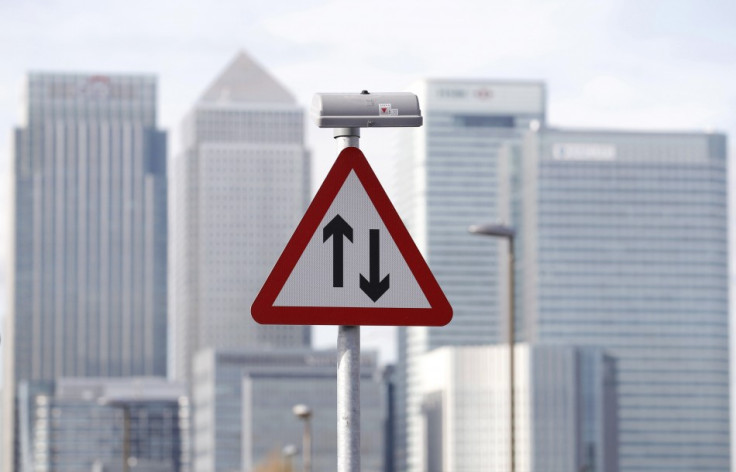UK Recession Drags on as June Service Sector Growth Slumps to Eight-Month Low
Slowing growth in UK's service sector, the dominant part of British economy, signals recession may extend into another quarter

Output growth in the UK service sector, which accounts for around three-quarters of overall GDP, collapsed to an eight-month low, according to a private industry survey, signalling a stark warning that the country's double-dip recession will extend into another quarter.
Purchasing managers surveyed for a leading index on sector activity reported fragile demand, worsening confidence about the future with eurozone uncertainty, lost output from extra holidays over the Queen's diamond jubilee and margins squeezed by increasing costs in labour, supply, and travel.
"The services economy saw one of its worst months since the recovery began three years ago, with the June survey showing signs of growth stalling," Chris Williamson, chief economist at survey compilers Markit, said.
"A steep drop in service providers' expectations about the year ahead also casts a gloomy shadow on prospects for the sector in the short term."
The purchasing managers index (PMI) for the service sector came in at 51.3 for June. Anything over 50 represents output growth, while under represents a contraction.
May's figure was 53.3.
Gloomy service sector PMI data follows grim survey findings elsewhere in the economy.
"Looked at alongside the other PMI surveys, which showed an ongoing downturn in manufacturing and a sharp deterioration in the construction sector in June, the services PMI probably cements the case for further stimulus from the Bank of England (BoE), with the three surveys now collectively down firmly into territory that has triggered action from the monetary policy committee in the past," Williamson said.
As the country wallows in its second recession in four years, with official GDP figures being revised down to reflect a steeper decline than expected, the BoE is poised to inject a further £50bn into its quantitative easing programme.
It has already reached its current £325bn limit, after spending billions buying up gilts to improve liquidity and free up cash on business balances sheets, in the hope that they start to spend on investment and growth to get the economy moving again.
BoE governor Mervyn King has now brought in two new credit easing schemes, in the hope that they will stimulate lending.
Under the Extended Collateral Term Repo and Funding for Lending, around £100bn will be made available to banks in the form of cheap loans, to offer a "significant financial incentive" to lend to the wider economy.
The more a bank lends at affordable rates, the more cheap loans they will receive, King said.
However, the governor cautioned, there are "no guarantees" that the schemes will work.
© Copyright IBTimes 2025. All rights reserved.






















